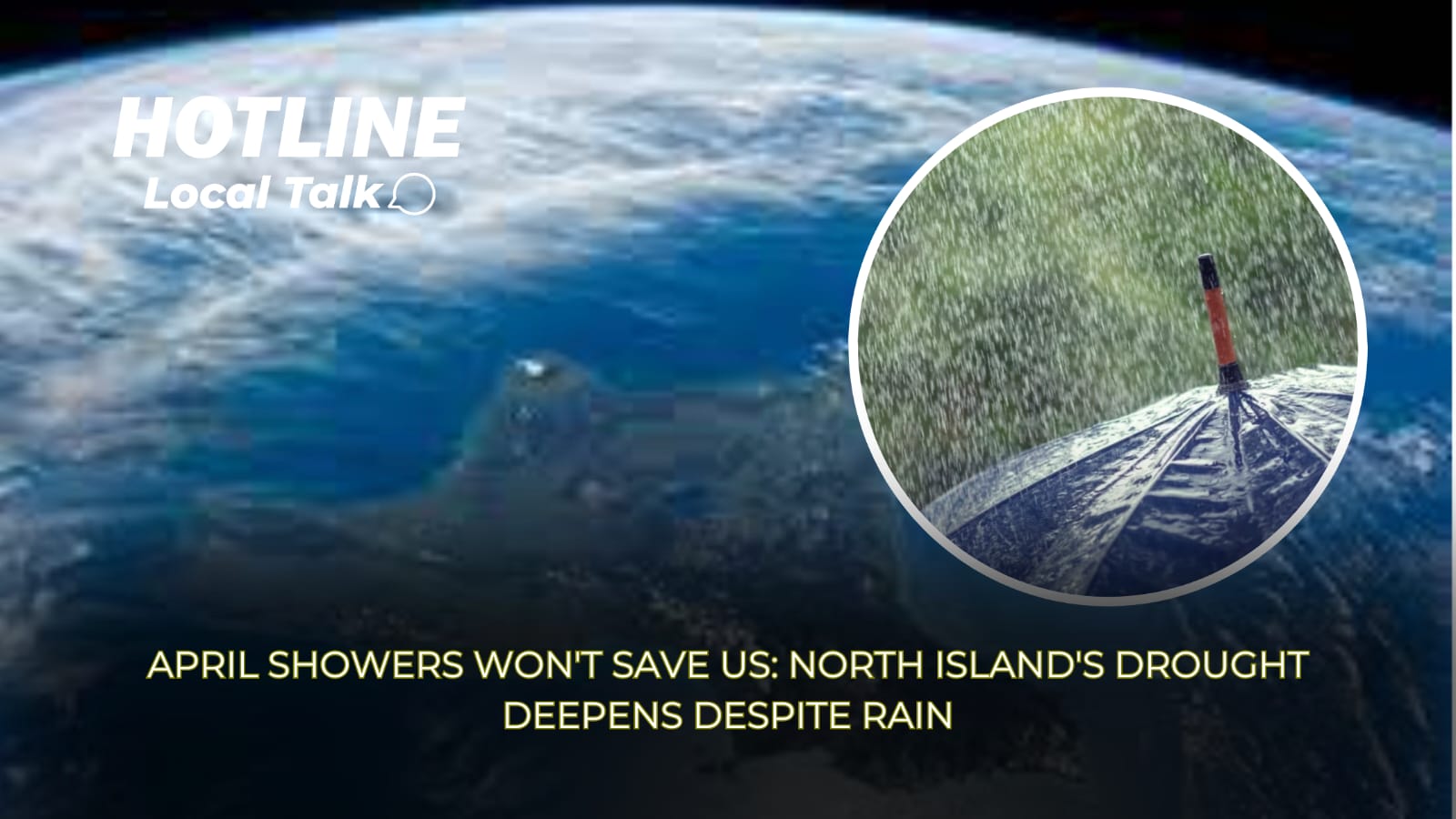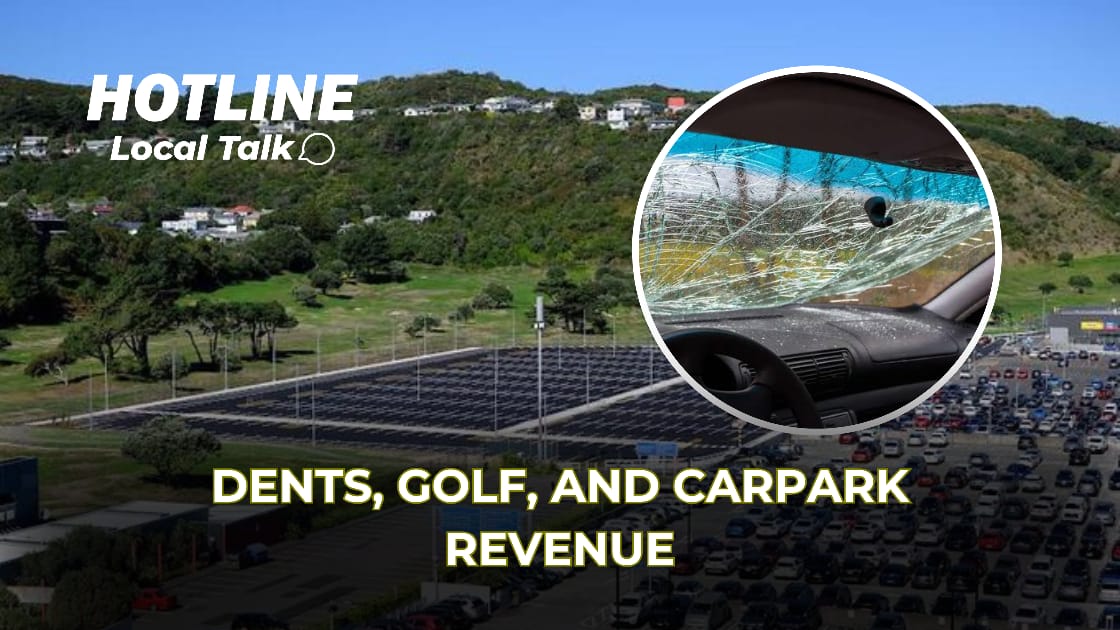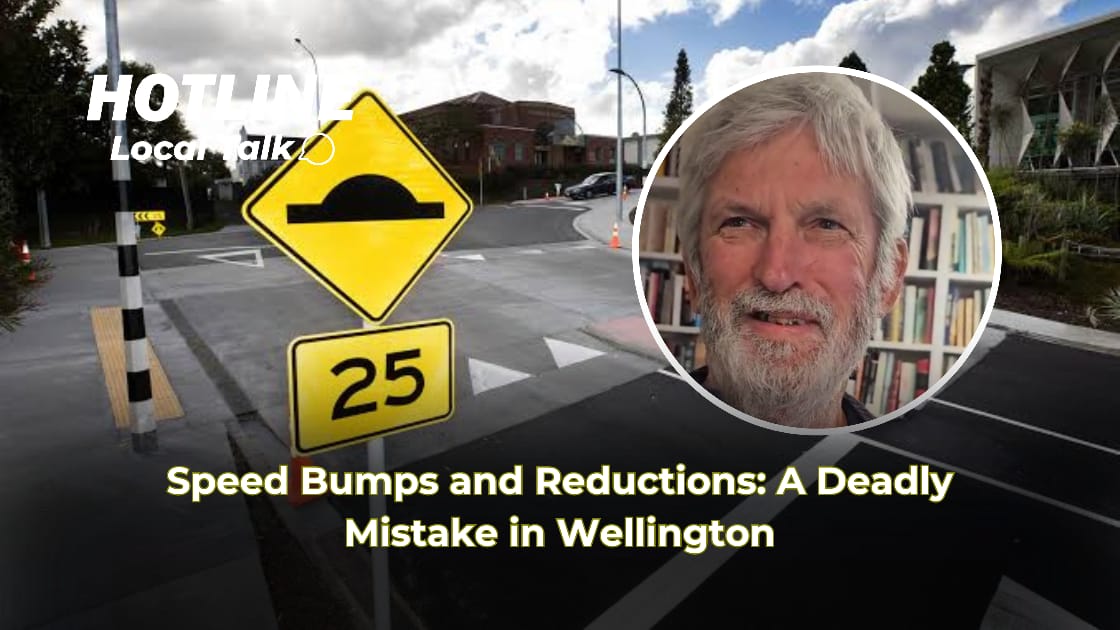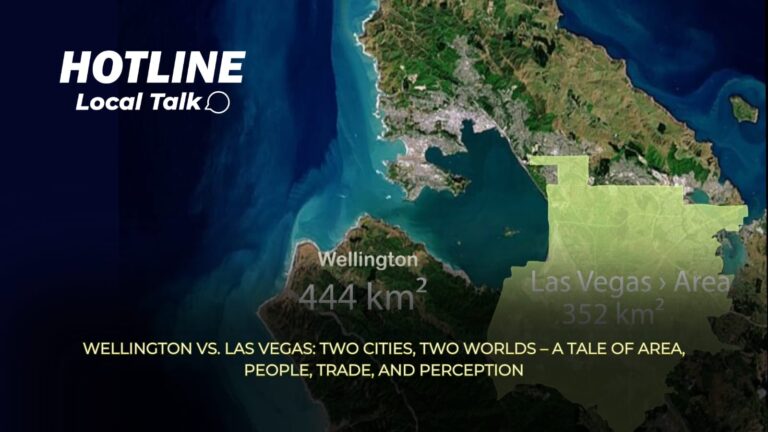Imagine two cities, both vibrant in their own right, yet as different as night and day. On one side, we have Wellington, New Zealand’s capital of cool, with its compact charm and intellectual vibe. On the other, Las Vegas, the world’s entertainment capital, sprawling in the desert with a reputation that precedes it. Both cities, though similar in population size, offer completely different realities. Let’s dive into this fascinating comparison, brought to you by One Network Wellington Live, to see how geography, culture, economy, and global perception shape these two unique urban landscapes.
Area & Population: Compact Charm vs. Desert Sprawl
Wellington, with a population of around 215,000, is nestled between hills and the sea, offering a harbourside lifestyle that’s both picturesque and practical. Its compact size means everything is within reach, fostering a community feel where walking or cycling is common. According to Stats NZ, Wellington’s urban area spans about 290 square kilometers, making it one of the most densely populated cities in New Zealand.
Contrast this with Las Vegas, where the population is roughly 650,000, spread across a vast desert landscape. The city covers about 352 square kilometers, but its urban sprawl feels much larger due to the expansive layout. A study by the Brookings Institution highlights how Las Vegas’ growth is driven by its car-centric culture, with wide streets and expansive developments that cater to tourists and residents alike.
Key Insight: Wellington’s geography encourages a lifestyle of close-knit community and sustainability, while Las Vegas’ desert setting promotes a lifestyle of space, mobility, and spectacle.
Cultural Biases: Sin City vs. Quirky Capital
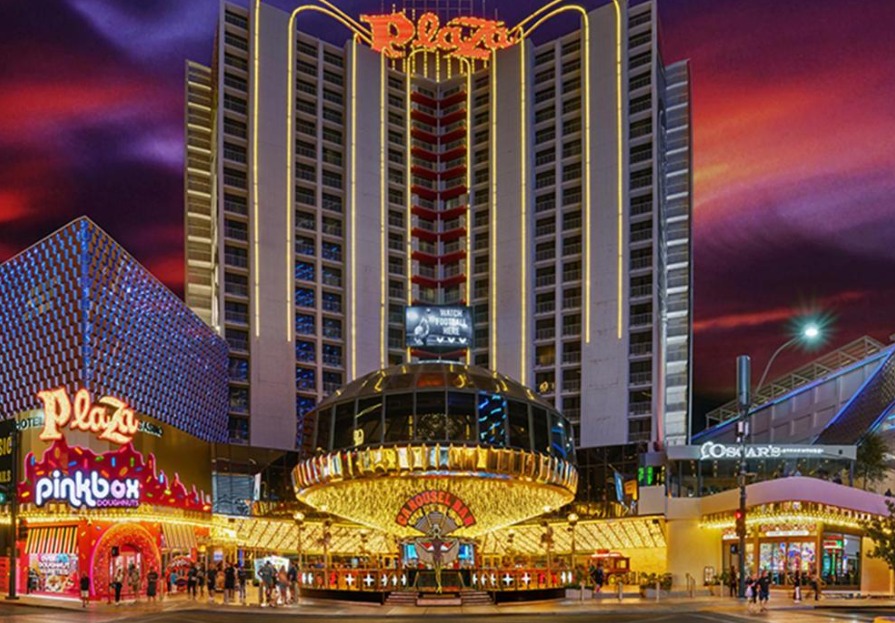
Las Vegas is often tagged with the “Sin City” label, a place where what happens stays, known for gambling, nightlife, and excess. However, this stereotype overshadows a city that’s also a hub for conventions, family-friendly attractions, and increasingly, technology and innovation. A 2023 report from the Las Vegas Convention and Visitors Authority shows that over 42 million visitors come annually, not just for the casinos but for diverse events.
Wellington, on the other hand, is celebrated for its quirky, intellectual atmosphere. It’s the home of Wētā Workshop, known for its film magic, and hosts the World of WearableArt, showcasing creativity. Yet, this image might underplay its vibrant tech scene, with companies like Xero and TradeMe headquartered here. A survey by Wellington NZ found that 78% of visitors come for cultural experiences, suggesting a city that’s more than just its intellectual reputation.
Trade & Economy: Entertainment vs. Innovation
Las Vegas’ economy is a powerhouse of tourism, with gambling, entertainment, and conventions at its core. According to the Nevada Department of Employment, Training and Rehabilitation, tourism accounts for about 38% of employment in Clark County. However, this reliance on tourism can be risky, especially post-economic downturns or global health crises, as seen in recent years.
Wellington’s economy is more diversified. Government services are a significant employer, but the city has carved out niches in technology, film, and even coffee culture. A report from the Wellington Regional Economic Development Agency (WREDA) indicates that tech firms contribute significantly to the local GDP, with the film industry adding a unique flair. This diversity might make Wellington’s economy more resilient, though less flashy than Vegas’.
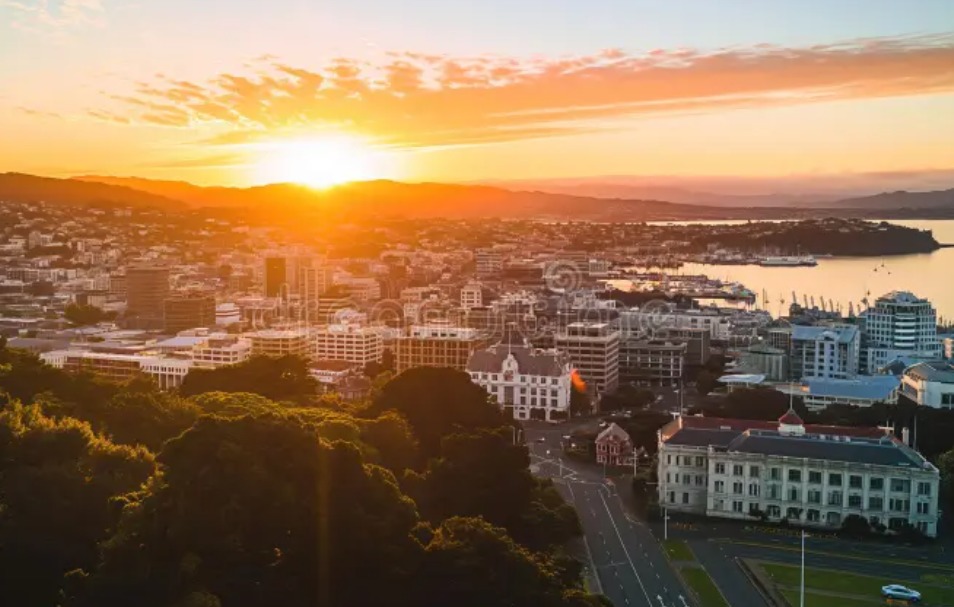
Quality of Life & Livability: Climate to Cost
Wellington’s climate is temperate, with mild summers and cool winters, moderated by the sea. Public transport is efficient, with a high satisfaction rate of 82% according to Metlink’s 2023 survey. Healthcare is robust, with Wellington Regional Hospital being a key facility. The cost of living, while high, is balanced by a quality of life that’s often ranked highly in global livability indexes, like the Mercer Quality of Living Survey where Wellington scores well.
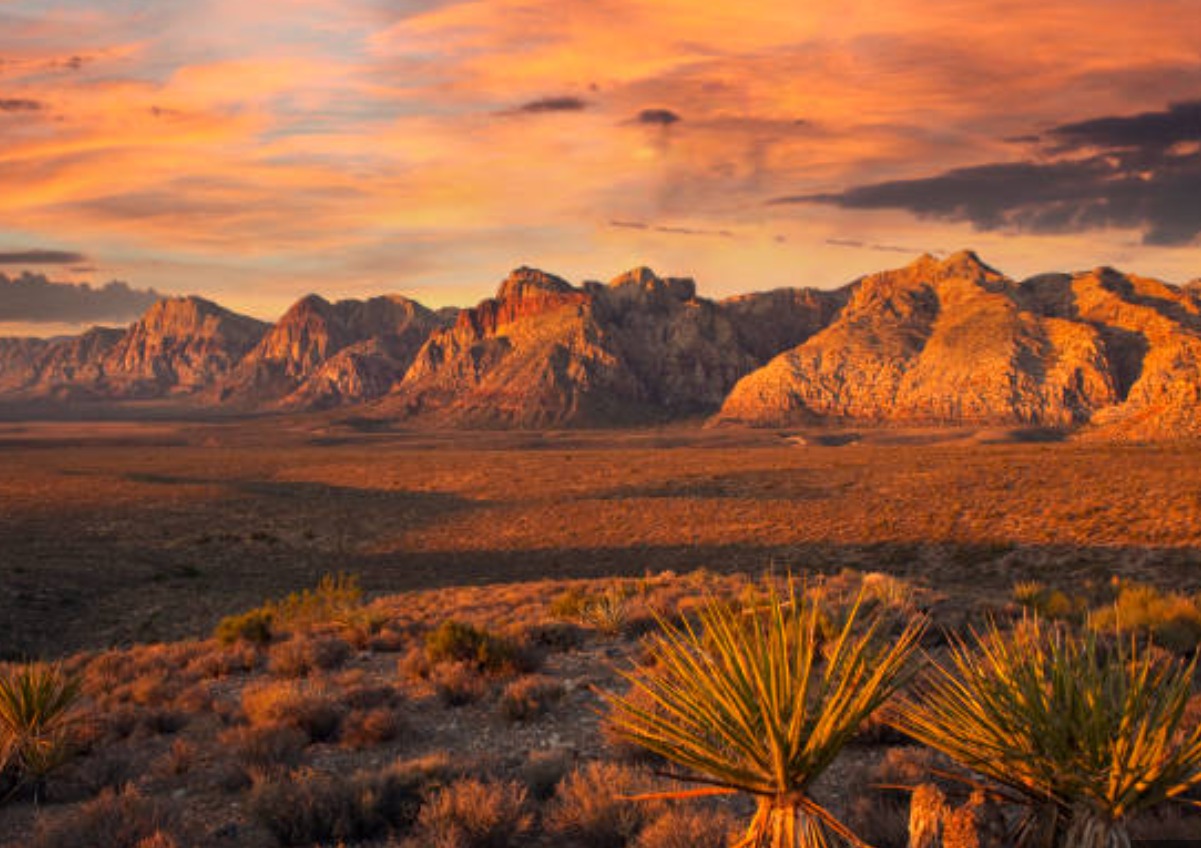
Las Vegas, with its hot desert climate, offers a stark contrast. Summers can be extreme, but winters are mild. Public transport isn’t as celebrated, with a car being almost necessary. Healthcare facilities like the Cleveland Clinic Lou Ruvo Center for Brain Health are top-notch, but the city’s livability can be affected by its focus on nightlife. The cost of living is lower than Wellington’s, but so is the walkability score, as per Walk Score data.
Global Recognition & Influence: Underhyped vs. Misunderstood
Wellington might be underhyped on the global stage, yet it punches above its weight in creativity and innovation. It’s known for its film industry, with Peter Jackson’s influence making it a global name in cinema. The city’s tech scene is burgeoning, with startups like those in the Creative HQ accelerator gaining international attention. Yet, its global influence often flies under the radar compared to larger cities.
Las Vegas, however, is misunderstood in its breadth. While famous for entertainment, it’s also becoming a tech hub, with companies like Google and Amazon setting up data centers. Its global recognition is tied to its brand of excess, but initiatives like the Downtown Project aim to redefine it as a place of innovation and community.
People & Diversity: Migration and Inclusion
Wellington’s demographic is diverse, with a significant portion of its population being migrants, contributing to a rich cultural tapestry. According to the 2018 Census, over 25% of Wellingtonians were born overseas, fostering an inclusive environment that’s reflected in its arts and food scenes. This diversity fuels innovation, with Wellington ranking high in startup activity per capita.
Las Vegas, while also diverse, has a different story. Its population includes a high percentage of Hispanic and Latino residents, with migration patterns influenced by job opportunities in hospitality and entertainment. The city’s diversity is vibrant, but social inclusion can be challenging, with economic disparities noted in reports from the UNLV Center for Business and Economic Research.
Conclusion: Two Cities, Two Futures
So, what happens in Vegas might stay in Vegas, but what happens in Wellington could indeed change the world, or perhaps it’s the other way around? Both cities offer unique lifestyles, economic models, and cultural identities. Wellington, with its blend of government, tech, and creativity, might be more future-proof in terms of economic diversity. Las Vegas, with its bold entertainment and growing tech sector, continues to redefine itself, challenging its own stereotypes.
For Wellingtonians, this comparison isn’t just about seeing how we stack up against a global entertainment giant; it’s about understanding our own city’s strengths and potential. As we look forward, One Network Wellington Live encourages you to engage with your city, appreciate its quirks, and perhaps see how we might learn from or inspire places like Las Vegas.
This article was crafted by One Network Wellington Live, your local source for insightful, community-focused content.


